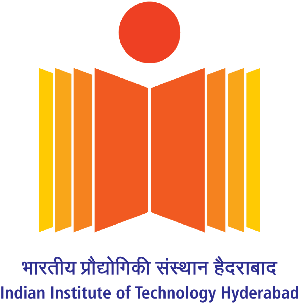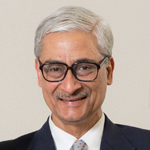Invited Speakers
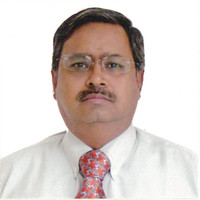
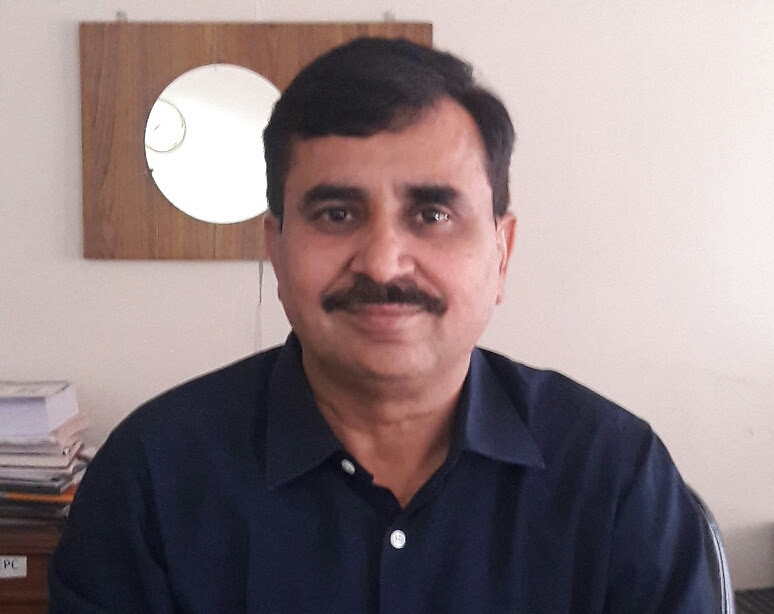

 |
Mr. N Sivasailam and Mr. R. K. Pathak, DoT, GoI; Mr. Satish Jamadagni, SG1 Chair, TSDSI; Ms. Pamela Kumar, Director General, TSDSI. Title of the Talk: 5G Initiatives in India and Telecom Standardization: Role of TSDSI Speakers Bio: N. Sivasailam is an officer of the 1985 batch of the Indian Administrative Service allotted to Karnataka Cadre. He graduated in Mechanical Engineering from University of Delhi. He did his Post Graduate studies at the Faculty Management Studies, University of Delhi and at the London School of Economics in Business Administration and Social Policy & Planning in Business Administration and Social Policy & Planning in Developing Countries respectively. He also has a Post Graduate Diploma in Intellectual Property Rights Law (IPRL) from the National Law School of India University, Bangalore. His last assignment in cadre was at the Department of Public Enterprises, Government of Karnataka where he served in the position of Additional Chief Secretary. He has served in the Departments of Health & Family Welfare and Forest, Ecology & Environment Departments of the Govt. of Karnataka as Principal Secretary. In his earlier stint with the Central Government, he served as Deputy Secretary (AIS) in the M/o Personnel, Public Grievances and Pensions. Presently, he is serving as Special Secretary (Telecom) to the Government of India and driving new National Telecom Policy and early adoption of 5G in India. He has been a Member of National Award Winning Teams in Panchayat Raj Administration and E-governance applications. Mr R K Pathak M Tech BHU joined Central Government through Engineering Services 1985 in July 1987. He has wide experience in promoting Domestic manufacturing of Telecom equipment and services. He was instrumental in liberalisation of FDI in telecom services up to 100 percent and Preferential Market Access Policy for telecom products. He is also instrumental in setting up of TSDSI. As Deputy Director General (International Cooperation), DoT he is looking after WTO, Bilateral and Multilateral negotiations, Telecom Centres of Excellences (TCoEs), National and International Exhibitions, Coordination of Telecommunications Standards Development Society, India (TSDSI), Secretary, TEPC and Director, TCoE India Coordination Centre. Satish Jamadagni has over 20 years of industry experience in the telecom domain covering Devices, Networks, Platforms and Services. He has led teams contributing towards product development, standards development and delivered essential patents for key organizations such as Reliance Jio, Motorola, Samsung, Nortel and Hughes. He is currently the Co-Chair of the Asia Regional Operators Group; Small Cell Forum (SCF); Chair of TSDSI Study Group – Networks; Active member of GTI (Global TDD Initiative) & 3GPP; He had previously served as a board of director for the International Multimedia Teleconferencing Consortium (IMTC). Satish has over 120 granted/pending patents in the wireless devices/platform domain and over 25 publications in the Wireless/Telecom area, He actively contributes to various standards bodies like 3GPP, TSDSI and GTI. Since February 2017, Ms. Pamela Kumar has been appointed as the Director General of TSDSI. An alumnus of PEC Chandigarh, Rutgers University and IIM Bangalore, Pamela brings with her an experience of 30+ years in the communications, computers and semiconductor industry. Prior to TSDSI, she has spent the first 10 years of her career at AT&T, Bell Labs in USA and at C-DOT in Bangalore. Later, she held leadership positions in Texas Instruments, IBM, Hewlett Packard Enterprise, R&D labs in India. She also did a short stint setting up the R&D centers of Network Programs and Alliance Semiconductors. She holds 3 Patents granted by USPTO and has 5 patent applications pending in the Networking Accelerators domain. She has been a Keynote/ invited speaker in 50+ Local and Global forums. Pamela is also the Founding Chair and current Vice President of Cloud Computing Innovation Council of India (CCICI). She is on the Governing Boards of Indian Financial Technologies and Allied Services (IFTAS) and PEC University of Technology. She is the Bharti Chair for IT Research and Member Research Council, UIET, Punjab University. She also mentors Startups in the ICT space. Pamela is currently the Chair of the IEEE Charles Steinmetz Awards Committee. She was the first ever appointee from India in the IEEE Standards Association - Board of Governors, as the Member at large for 2011-12. She has held several other leadership roles as a senior member of IEEE - such as Chair for IEEE Computer Society- Bangalore Section, Vice Chair of IEEE Bangalore section, Coordinator for IEEE R10 Industry Relations, General Chair of IEEE ANTS Conference etc. |
|
|
Prof. Ashwin Gumaste, IIT BombayTitle of the Talk: Terabit SDN Router: Design and DevelopmentAbstract: Speaker Bio: Ashwin Gumaste is currently an Associate Professor in the Department of CSE at IIT Bombay in Mumbai. He was the Institute Chair Associate Professor (2012-2015) and the JR Isaac Chair (2008-11). From 2008-10 he was a Visiting Scientist and Scholar at the Massachusetts Institute of Technology (MIT), Cambridge, USA. Ashwin has held positions with Fujitsu Laboratories (USA) and has also worked with Cisco Systems. He was a consultant to Nokia Siemens Networks focusing on NGPON2. He has also held short-term positions at Comcast, Lawrence Berkeley National Labs, and with Iowa State University. His work on light-trails has been widely referred, deployed and recognized by both industry and academia. His recent work on Omnipresent Ethernet has been adopted by tier-1 service providers and also resulted in the largest ever acquisition between any IIT and the industry. This has led to a family of transport products under the premise of Carrier Ethernet Switch Routers. Recently Ashwin and his team have built a Terabit capable SDN whitebox that is under deployment. Ashwin has 24 granted US patents and has published about 175 papers in referred conferences and journals, inclusive of 3 best paper awards. He has also authored three books in broadband networks. For his contributions he was awarded the DST Swaranajayanti Fellowship in 2013, Government of India’s DAE-SRC Outstanding Research Investigator Award in 2010, the Vikram Sarabhai research award in 2012, the IBM Faculty award in 2012, the National Academy of Sciences in India, NASI-Reliance Industries Platinum Jubilee award 2016, as well as the Indian National Academy of Engineering’s (INAE) Young Engineer Award (2010). |
| Prof. Subhash Bhalla, The University of AIZUTitle of the Talk: Independent Dependency Tracking in Mobile Ad hoc NetworksAbstract: |
.jpg) | Mr. Anand Joshi, Redpine SignalsTitle of the Talk: Accelerating AI applications in hardwareAbstract:Artificial Intelligence has emerged as a prominent new technology and is making a buzz in media. Many companies are developing dedicated chipset and hardware to accelerate AI applications. AI technology by definition is heavily mathematical in nature and requires special consideration when run in hardware. Challenges pertaining to power, performance and cost must be overcome to build a successful AI system. In this presentation, we’ll provide users with overview of the AI applications, use cases and different chipset options. We’ll discuss performance and power requirements for wide range of AI application involving computer vision, voice, text and data. An overview of popular platform and hardware options will also be provided.Speaker Bio:Mr. Anand Joshi is Sr. Director of AI products at Redpine Signals. He has over 20 years of experience in semiconductor and embedded industry. Prior to joining Redpine, he was market analyst at Tractica with focus on AI. He advised many Fortune 500 companies regarding AI products and strategy in that role. Earlier he was vice president and general manager of a business unit at Alten Calsoft, which was Adobe’s scaling partner and specialized in Adobe Flash Player. During his tenure at Calsoft, Joshi started the business unit and grew it to over 100 people worldwide. Anand was also a co-founder of Poseidon Design Systems, a startup focused on hardware acceleration of video where he successfully raised two rounds of capital. His early career spanned various engineering and marketing positions at Synopsys and LSI Logic. Anand has MBA from University of California Irvine and MSEE from Virginia Tech. |
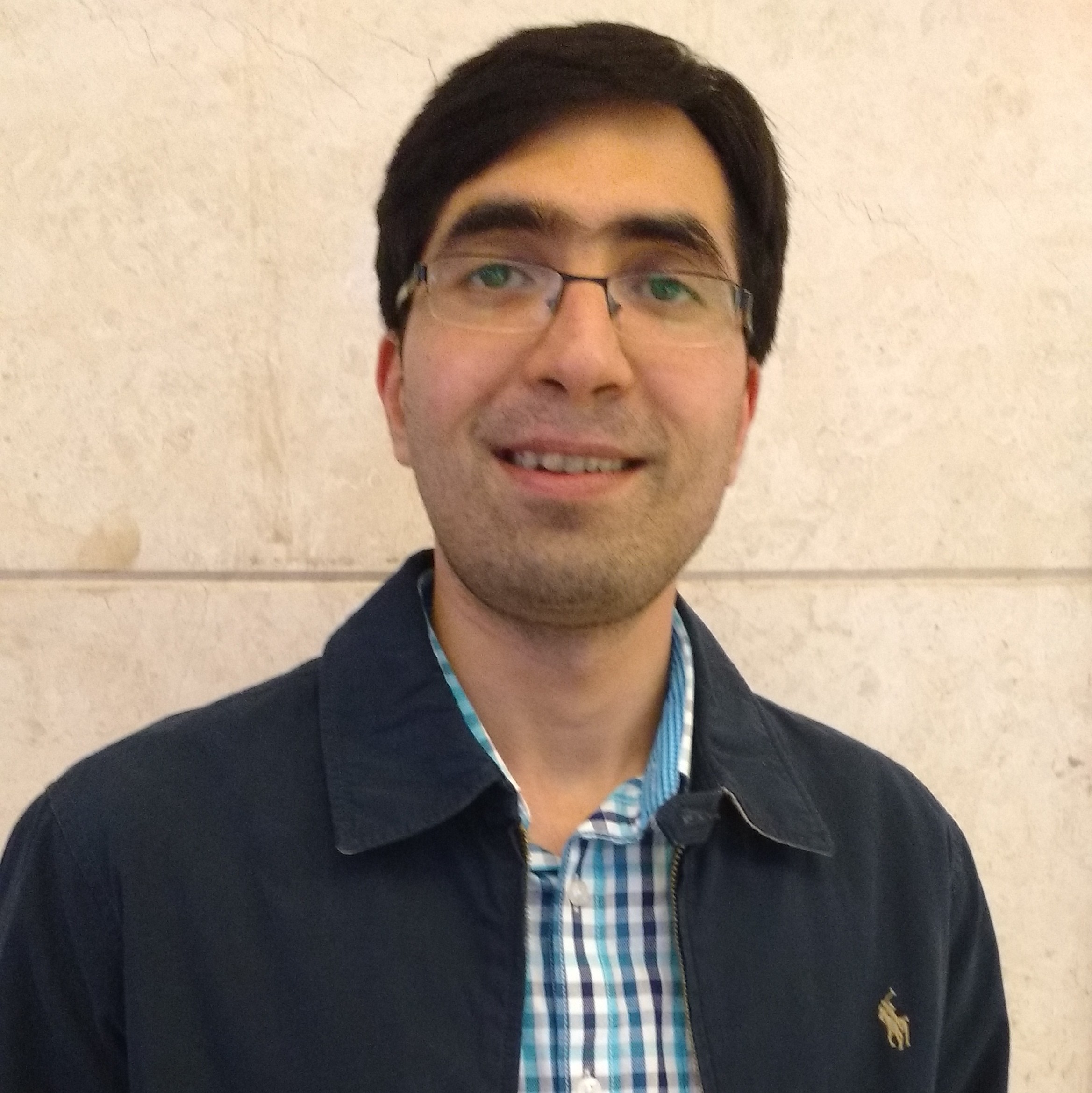 |
Dr. Mohan Dhawan, IBM Research, India.
Title of the Talk: ZEUS: Analyzing Safety of Smart Contracts
Abstract: A smart contract is hard to patch for bugs once it is deployed, irrespective of the money it holds. A recent bug caused losses worth around $50 million of cryptocurrency. We present ZEUS — a framework to verify the correctness and validate the fairness of smart contracts. We consider correctness as adherence to safe programming practices, while fairness is adherence to agreed upon higher-level business logic. ZEUS leverages both abstract interpretation and symbolic model checking, along with the power of constrained horn clauses to quickly verify contracts for safety. We have built a prototype of ZEUS for Ethereum and Fabric blockchain platforms, and evaluated it with over 22.4K smart contracts. Our evaluation indicates that about 94.6% of contracts (containing cryptocurrency worth more than $0.5 billion) are vulnerable. ZEUS is sound with zero false negatives and has a low false positive rate, with an order of magnitude improvement in analysis time as compared to prior art. |
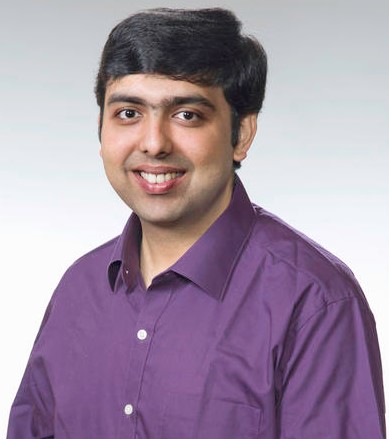 |
Dr. Amod Anandkumar, MathWorks India.
Title of the Talk: What’s new in MATLAB for Audio Signal Processing
Abstract: Learn about what’s new in MATLAB for real-time audio processing, microphone/loudspeaker array processing, machine learning, deep learning, and hardware implementation. |
 |
Mr. Satish Jamadagni, Reliance Jio and TSDSI. Title of the Talk: 5G: What is missing and What it should be Abstract: It has been a few years since we have seen large scale LTE deployments worldwide. Key issues that have come in the way of realizing full LTE potential are the following: Backhaul limitations (fiber penetration), spectrum scarcity in key geographies, lack of open Service deployment architectures and other such issues. In 5G discussions including the ongoing standards efforts, there is little effort to address these issues from the LTE era BUT the focus is more on a next generation air interface to provide gigabit throughput, impose non coherent use cases (URLCC and eMBB as an example) on to a single air interface (or a class of unified air interface as they are called). The result is that 5G is a set of technologies that may not be easy to implement. As an example one can easily question that when the LTE based (strictly not correct but I will use it anyway) IOT technologies like NB-IOT itself is yet to see deployments in scale; 3GPP is working on URLCC (Ultra Reliable Low Latency Communications) and there seems be no smooth path from the existing NB-IOT (or even the HRLCC – which is Highly Reliable Low Latency Communication) to URLCC. The NFV/SDN or the Network Slicing specification is hard to realize for LTE networks (and subsequently for 5G) and it is unclear what markets will look at green field 5G deployments where these specifications could be useful. In this presentation we take a critical view of the manner in which the 5G specifications are evolving and address the below issues: Speaker Bio:Mr. Satish Jamadagni has over 20 years of industry experience in the telecom domain covering Devices, Networks, Platforms and Services. He has led teams contributing towards product development, standards development and delivered essential patents for key organizations such as Reliance Jio, Motorola, Samsung, Nortel and Hughes. He is currently the Co-Chair of the Asia Regional Operators Group; Small Cell Forum (SCF); Chair of TSDSI Study Group – Networks; Active member of GTI (Global TDD Initiative) & 3GPP; He had previously served as a board of director for the International Multimedia Teleconferencing Consortium (IMTC). Satish has over 120 granted/pending patents in the wireless devices/platform domain and over 25 publications in the Wireless/Telecom area, He actively contributes to various standards bodies like 3GPP, TSDSI and GTI. |

